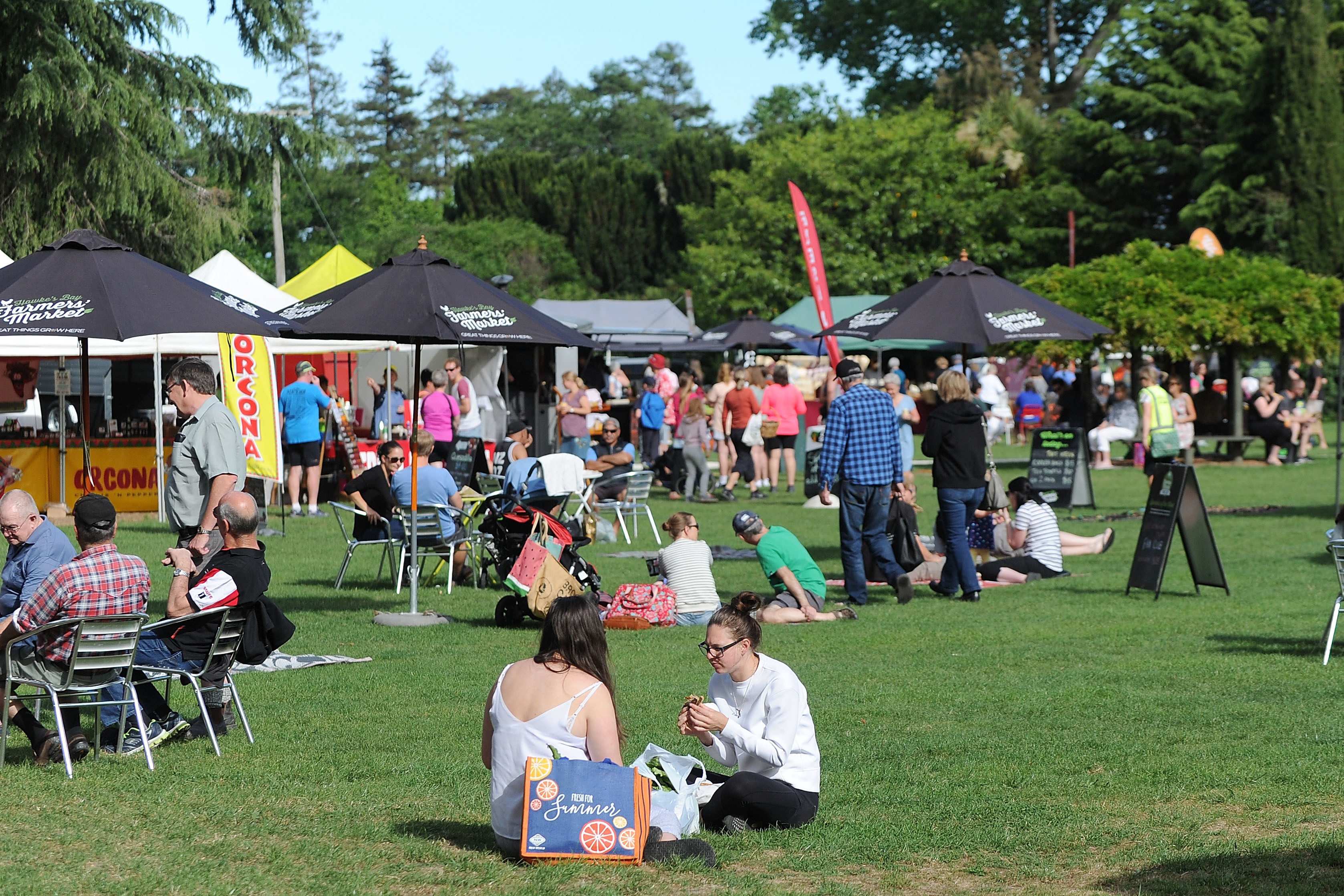Can't see the place you're looking for?
North Island:
South Island:
Thames:
Tairua:

To market, to market - NZ farmers markets
Posted by —
eatnewzealand
Published —
12.02.2018
Farmers markets are now firmly established in the Kiwi foodie culture, with 40 markets operating and new markets added to the list each year - in towns and cities throughout New Zealand.
But, while it’s a trend consistent with the worldwide movement against industrial food, New Zealand farmers' markets are more than a commercial platform.
As new markets open, more and more New Zealand families are making the weekly shopping trip around their market to stock up on wholesome local produce while rubbing shoulders with other locals.
Many markets are situated in small regional communities and in public spaces where they have become a meeting place. Colourful, vibrant market places are often fringed by cafes and eating places where locals can meet friends and neighbours, enjoy entertainment and catch up on local news.
Tempting for tourists
For tourists, farmers' markets provide a great insight into the regional heartland and are an ideal place to sample local fare, meet the locals and experience the New Zealand way of life.
Virtually unknown 10 years ago, farmers' markets are now an established part of the retail scene offering good value for money for shoppers and providing small businesses with an affordable shop front.
In a country that can grow almost anything, New Zealand markets are stacked with fresh vegetables and fruit - some of it organic - locally-made cheeses and gourmet treats, fish and meat, home-made jams and preserves, flowers and plants, all vying for stall space alongside warm bread, fresh baking, hand-made chocolates, boutique wines and beers.
Regional influence
Each market reflects its regional difference with the climatic conditions and environmental changes playing a role in the range of produce from north to south.
You won’t find the sub-tropical fruits of the north on stalls in Southland, nor will the South Island’s boutique beers and ocean catches be likely to appear at markets in Northland.
By definition, authentic farmers markets are food-only markets (with some exceptions for flowers and plants), with no resellers allowed - so those who have grown or made the food are the ones selling it.
For today’s market-goers this is an increasingly important influence in the selection process - they not only want to know where the food was grown but also by what method, whether sprays were used, the style and date of harvesting, and the storage policy.
The growing quest for fresh goods means more markets are now opening twice weekly to satisfy shoppers who are no longer happy to just buy their produce once a week or store goods for lengthy periods.
Variety and taste
Farmers’ markets are also an outlet for heritage varieties. Modern agriculture and distribution systems tend to have limited the choice of fruits and vegetables, and producers say customers are rediscovering food they had given up on long ago.
Buying fresh at market stalls has also redefined many items and customers are enthused by discovering that fresh, home-grown fruit and vegetables are in a class of their own.
Crisp vegetables with texture and flavour, fruits that don’t go bad before they ripen, salad greens that last, tomatoes that haven’t been near a fridge - all serve to remind consumers of how things used to be.
Fresh is best
Jono Walker of Farmers' Markets NZ says that it is the idea of freshness that is the key to the success of New Zealand farmers markets. "You need only look at some of the logos of farmers markets around the country - ‘made & grown nature’s way’, ‘fresh is best’, ‘from farm gate to dinner plate’ - to understand the proximity between production and consumption". "This proximity also means there are very few food miles consumed. An apple bought directly from a local orchardist makes so much more sense than one shipped to a central distribution point only to be transported back to your local retail outlet," says Walker.
Other ways farmers' markets increase sustainability in their communities is with their regional focus, by providing sales outlets for even the smallest producers who otherwise might struggle to get their product to market. Farmers who might find it difficult to meet the financial and quantity demands of global supermarket chains can still find an outlet. This in turn encourages the preservation of agricultural and horticultural land. It also encourages biodiversity of land use - smaller amounts of multiple crops rather than big monocultures of just one crop.
At the same time, farmers' markets play a role in the region’s social collateral by fostering a sense of community and pride. They also encourage closer ties between the urban centre and the surrounding rural areas that sustain it.
New farmers markets
The New Zealand farmers' market scene is constantly evolving. A few markets, particularly in more sparsely populated areas have come and gone, but new markets continue to emerge, adding to the original list of farmers markets that continue to thrive and grow.
There is a growing trend for established markets to look for new opportunities in neighbouring towns. The Hamilton Farmers’ Market has recently added Cambridge and Te Awamutu to its list of locations
Other farmers' markets like Marlborough have established mid-week or twilight markets such as the one in Blenheim, while Farmers' Market Taranaki takes its 'Market On The Road' to Taranaki Regional Council gardens in summer.
Events, competitions and promotions are helping attract new markets into the Farmers’ Markets NZ organisation. The Taste Awards are run annually in conjuction with Taste magazine.
(Source: Media.New Zealand)
Just search for Farmers Market on this website to find one close to you.

